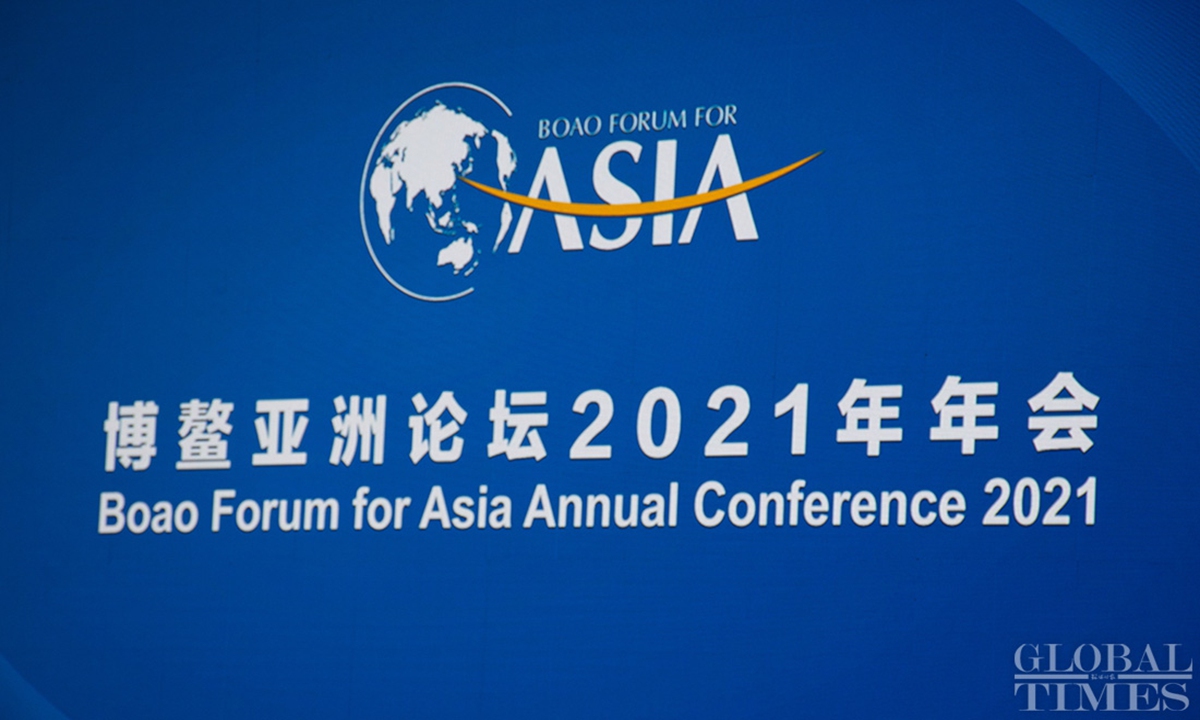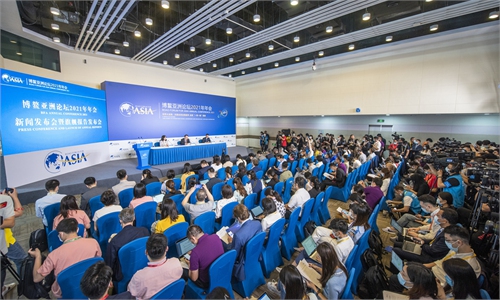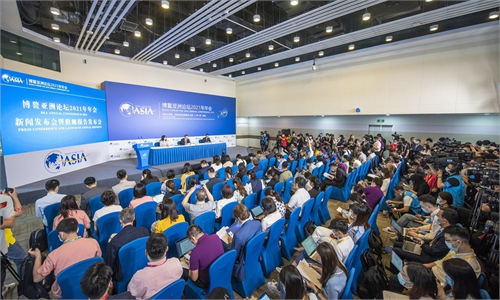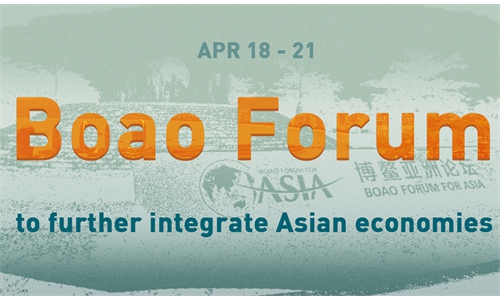
Photo: Chi Jingyi/GT
The Boao Forum for Asia (BFA) kicked off in South China's Hainan Province on Sunday, at a critical time when much of the world remains under the shadow of the COVID-19 pandemic, while Asian economies led by China are seeing both robust recovery and rising external risks posed by the US.
The BFA has become a major platform for regional cooperation. This year's BFA is of greater significance, as it marks the dawn of Asia's recovery and is set to inject much-needed momentum and confidence for the post-pandemic global economy. Attended by Chinese and other leaders, the forum is also set to further boost regional cooperation in a wide range of areas from trade to vaccines.
At the opening on Sunday, the BFA released its "Asian Economic Outlook and Integration Progress" report, which predicted that the Asian economy will grow by at least 6.5 percent in 2021, representing a robust rebound from the 1.7 percent contraction recorded in 2020. That is mostly in line with other analysis and forecasts by international financial institutions, highlighting Asia's rise in a new world order after the COVID-19 pandemic.
While the unprecedented health crisis caused serious trouble for Asian economies last year as it did around the world, they decisively outperformed the rest of the world. Their relatively strong economic performance could be mainly attributed to the effective epidemic control and the resilience of the Asian industrial chains centering around China.
China was the only major economy to grow in 2020, and the economy surged 18.3 percent year-on-year in the first quarter of 2021, making it the best performer among major economies around the world.
Other Asian countries that vanquished the epidemic most effectively were also able to bring their economies back to the normal track most quickly by resuming production and business operation early and orderly.
Furthermore, the signing of the Regional Comprehensive Economic Partnership, or RCEP, is expected to further enhance the economic and trade cooperation among major Asia Pacific economies and further boost regional integration. That will not only further speed up regional development but also inject solid impetus to the global economic recovery.
However, challenges and risks remain. It is imperative to note that the international environment is deteriorating as US-led Western anti-China forces have made no secret of their strategic plot to contain China's development by sowing division within the Asia Pacific community. Such a malicious intention is likely to become a source of uncertainty for economic cooperation and integration in Asia.
Most Asian countries have been doing their best to avoid picking sides amid heightened China-US tension, but there are still some individual countries, mostly notably Japan, that appear to be short-sighted and willing to be a vassal of Western powers at the cost of the region's collective interest.
For its part, China has made tremendous efforts and contribution to promoting regional and global cooperation in face of unprecedented slander and attacks. At the BFA this year, Chinese leaders are expected to announce more opening up measures, including those for the Hainan Free Trade Port, which will lead to more opportunities for regional and global cooperation.
However, it is also essential for other Asian countries to do their part and take actions to defend the regional development momentum from outside disruption. We cannot allow the West-directed geopolitical farce to become the main theme of the Asian Century.



